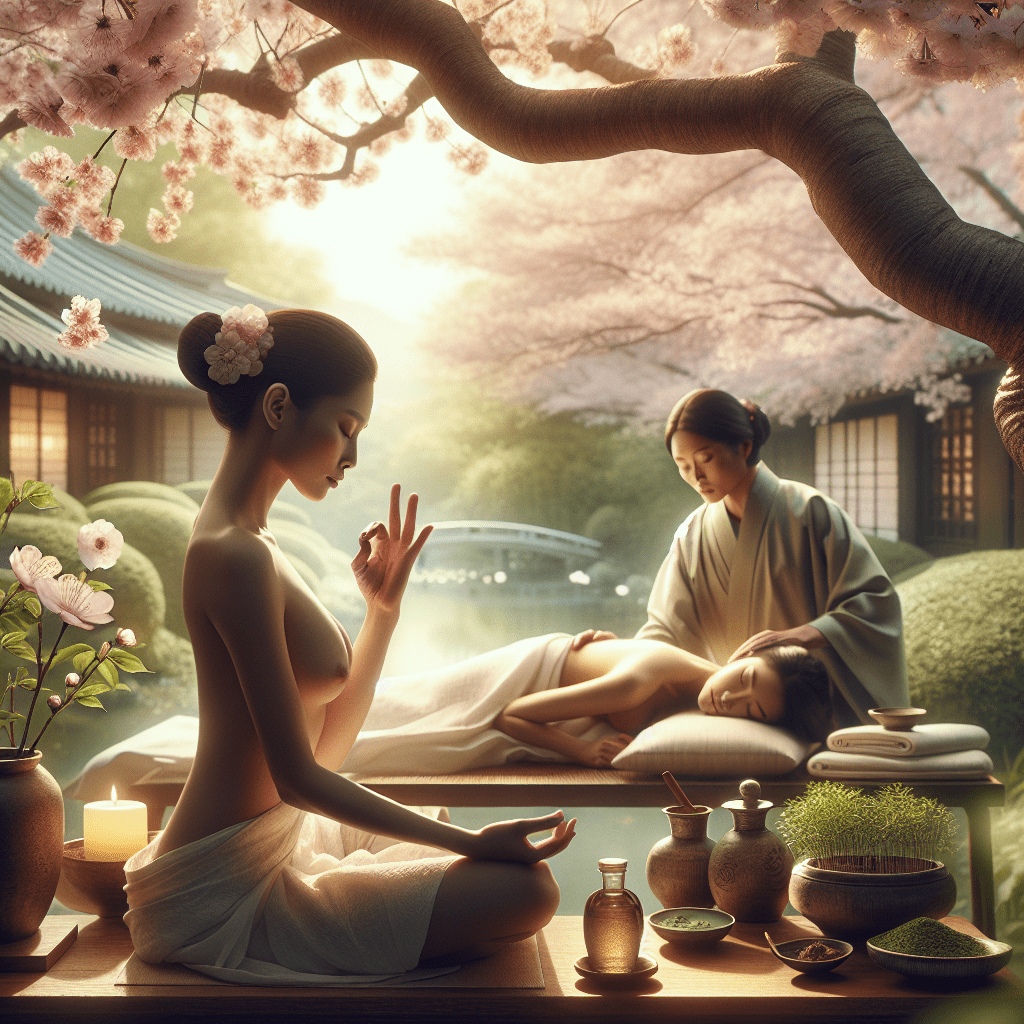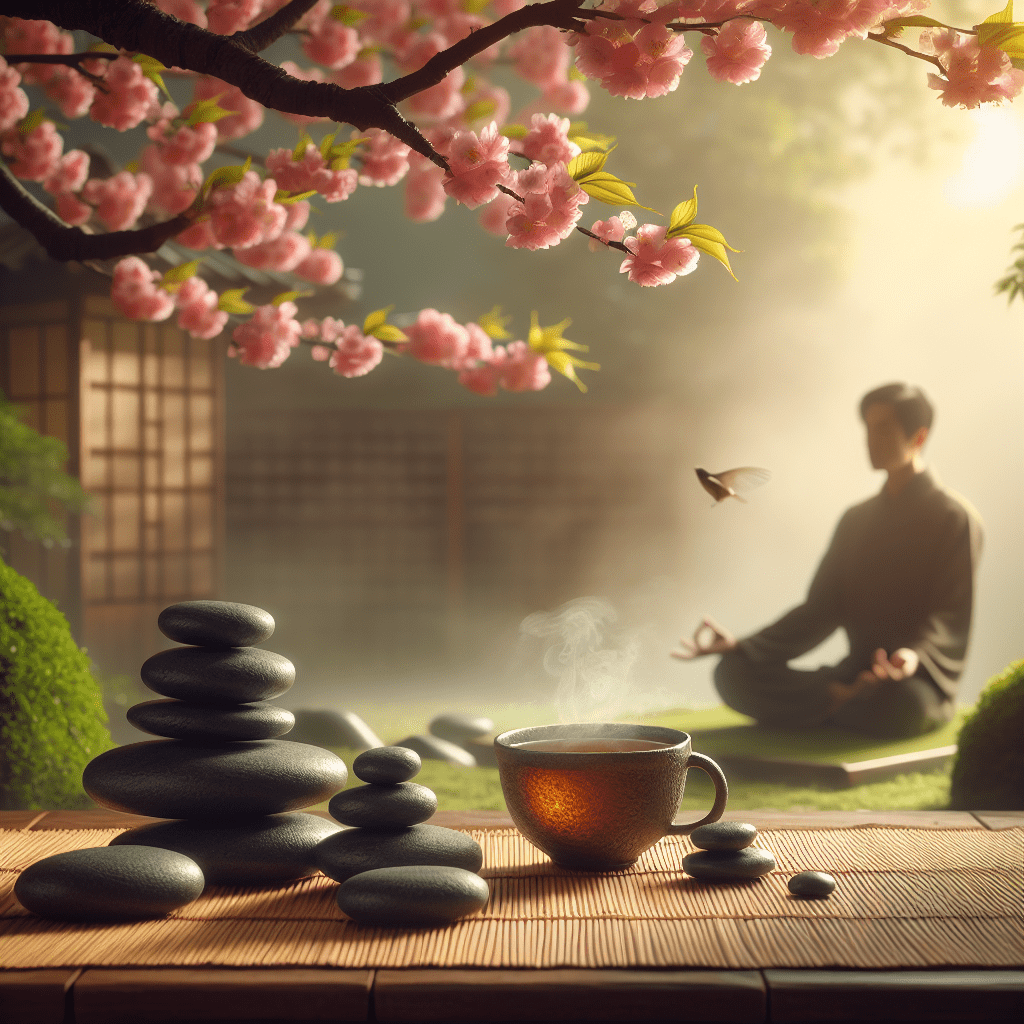Ever noticed how your grandparents seemed to have a remedy for everything? A special tea for stomach aches, specific foods for seasonal changes, or daily rituals that kept them vibrant well into old age? These weren’t just random habits—they were part of traditional healing knowledge that has been passed down through generations. And there’s something fascinating about these ancient practices: they almost always focus on keeping you healthy rather than fixing you once you’re sick.
In today’s world of reactive healthcare, where we often wait until something breaks before fixing it, traditional healing knowledge offers a refreshing alternative. These time-tested practices prioritize prevention, balance, and whole-person wellness long before illness takes hold. This ancient wisdom isn’t just history—it’s increasingly relevant in our modern world where many are seeking more holistic approaches to health.
The Holistic Foundation of Traditional Healing
Traditional healing systems see health as an integrated whole, focusing on balance and harmony across all aspects of life. This foundation explains why prevention has always been central to these ancient practices.
At its core, traditional healing knowledge views health through a different lens than many modern approaches. Rather than seeing the body as a collection of separate systems, traditional healing embraces a holistic philosophy that recognizes the interconnection of mind, body, and spirit. This fundamental principle is why prevention takes center stage in traditional healing practices worldwide.
“Traditional medicine doesn’t wait for the river to flood before building a dam,” explains Dr. Maya Chen, an integrative medicine practitioner. “It’s about maintaining balance within all aspects of your being, because imbalance in one area inevitably affects the others.”
This holistic approach recognizes that health isn’t merely the absence of disease but rather a state of complete physical, mental, and spiritual well-being. Traditional healing knowledge teaches that when these elements are in harmony, the body naturally resists illness. Prevention becomes not just a medical strategy but a way of life—a daily commitment to maintaining balance before imbalance can take root.
The Five Element Theory from Eastern medicine, which forms the foundation of systems like HerbalsZen’s EASTCHI AI, perfectly illustrates this preventive approach. By understanding how the elements of wood, fire, earth, metal, and water interact within us, practitioners can identify subtle imbalances and address them before they manifest as illness.
The Guardians of Preventive Wisdom
Traditional health care practitioners—whether they’re known as healers, shamans, herbalists, or medicine people—play a crucial role in preventive health care. These knowledge keepers utilize cultural beliefs, natural remedies, and ancient wisdom to guide their communities toward better health.
Unlike the 15-minute appointments common in modern healthcare systems, traditional healers often spend significant time with individuals, carefully observing subtle signs and patterns that might indicate future health concerns. They consider not just physical symptoms but also emotional states, lifestyle factors, spiritual well-being, and even community relationships.
Maria Tlapanco, a traditional Mexican curandera (healer), shares, “In my practice, I might spend hours with someone who isn’t even sick yet. I observe how they speak, how they move, what foods they crave. These tell me where imbalance is beginning, long before medical tests would show anything.”
This deep observation enables traditional healers to recommend specific preventive measures—dietary adjustments, herbal tonics, spiritual practices, or lifestyle modifications—tailored to each individual’s unique constitution. This personalized approach to prevention reflects the understanding that we each have different vulnerabilities and strengths.
Bridging Ancient Wisdom and Modern Science
The most exciting development in health care today might be the growing integration of traditional healing knowledge with modern medicine. This combination creates a powerful synergy that honors ancestral wisdom while embracing scientific advances.
Research institutions are increasingly studying traditional remedies, validating what traditional healers have known for centuries. For instance, turmeric, a staple in Ayurvedic medicine for thousands of years, has been scientifically proven to have powerful anti-inflammatory properties. Similarly, mindfulness meditation, practiced in Buddhist traditions for millennia, is now prescribed by doctors for stress reduction and mental health.
“We’re seeing a beautiful convergence,” notes Dr. James Thompson, who specializes in integrative medicine. “Traditional healing knowledge often points us in directions that scientific research later confirms. When we combine these approaches, patients get the best of both worlds—preventive strategies that have stood the test of time alongside modern diagnostic tools and treatments when needed.”
This integration mirrors the philosophy of organizations like HerbalsZen, which combines 2,000-year-old Eastern medical knowledge with cutting-edge AI technology to create personalized health recommendations. By analyzing constitutional types through traditional frameworks while utilizing modern technological capabilities, such approaches honor ancient wisdom while making it accessible in contemporary contexts.
Cultural Roots of Healing Traditions
Traditional healing knowledge isn’t just a collection of remedies—it’s deeply embedded in cultural identity and community continuity. These practices reflect worldviews, values, and relationships with the natural world that have sustained communities for generations.
“Our healing traditions are inseparable from our cultural identity,” explains Nana Ama Kyerewaa, a traditional healer from Ghana. “When I teach young people our traditional preventive practices, I’m not just helping them stay healthy—I’m connecting them to their ancestors and their heritage.”
This cultural context is essential for understanding why traditional healing knowledge focuses so heavily on prevention. Many indigenous and traditional cultures view humans as part of a greater whole—interconnected with nature, community, and spiritual forces. Maintaining harmony with these elements through preventive practices isn’t just healthcare—it’s a spiritual and cultural responsibility.
The seasonal approach to health in many traditional systems reflects this cultural wisdom. Chinese medicine, for example, recommends specific foods, activities, and practices for each season to maintain harmony with nature’s cycles. This preventive approach recognizes that our bodies face different challenges throughout the year and prepares us accordingly—a concept that EASTCHI AI incorporates by providing seasonal dietary guidance based on Eastern medical theories.
Daily Practices for Lifelong Health
The power of daily practices lies in their cumulative effect. Small, consistent actions create a strong foundation of health that prevents disease before it can take root.
The preventative focus of traditional healing knowledge is perhaps most evident in the daily practices it prescribes. Rather than waiting for symptoms to appear, these traditions offer lifestyle modifications, dietary adjustments, and natural remedies that strengthen the body’s defenses against illness.
Consider the morning routine recommended in Ayurvedic medicine: tongue scraping, oil pulling, and self-massage with warm oil. These simple daily practices are designed to remove toxins, improve oral health, enhance circulation, and calm the nervous system—all before the day even begins. By incorporating such practices into daily life, traditional healing systems build resilience that prevents illness from taking hold.
Diet plays a central role in preventive traditional healing knowledge. As the ancient Greek physician Hippocrates famously stated, “Let food be thy medicine and medicine be thy food.” Traditional healing systems worldwide recognize the preventive power of proper nutrition, often recommending specific foods based on an individual’s constitution, the season, or particular health concerns.
“In traditional Chinese medicine, we don’t wait until someone has a cold to recommend immune-supporting foods,” explains Dr. Li Wei, a TCM practitioner. “We guide people to eat warming foods in winter, cooling foods in summer, and always maintain balance between flavors and food energetics. This preventive approach builds strength before illness has a chance to develop.”
Nature’s Medicine Cabinet: The Power of Plant Wisdom
At the heart of traditional healing knowledge lies a profound relationship with the plant world. Long before pharmaceutical companies existed, traditional healers identified thousands of medicinal plants with remarkable properties—many of which have become the basis for modern medications.
The use of natural remedies in traditional healing reflects a preventive philosophy. Many herbal preparations aren’t just used to treat illness but to strengthen the body’s natural defenses, support organ function, and maintain overall balance. Adaptogens like ashwagandha and holy basil in Ayurvedic medicine, for instance, help the body respond to stress more effectively, preventing the cascade of health problems that chronic stress can trigger.
“Our ancestors understood that plants contain wisdom and power,” shares Rosita Arvigo, a traditional healer trained in Maya medicine. “They knew which plants strengthened the heart before heart problems developed, which supported the liver through challenging times, which built strong blood. This preventive use of plant medicine is sophisticated and effective.”
This celebration of natural remedies is reflected in HerbalsZen’s approach, which recognizes the profound healing potential of herbs and plants when used according to traditional knowledge systems. By respecting the time-tested wisdom around these natural medicines, we tap into preventive strategies that have sustained human health for millennia.
Global Recognition of Ancient Wisdom
The World Health Organization estimates that about 80% of the world’s population relies on traditional medicine for their primary healthcare needs. This widespread use reflects not just necessity but also the recognized effectiveness of these approaches, particularly in prevention.
In recent decades, global health organizations have increasingly acknowledged the value of traditional healing knowledge. The WHO has developed strategies to promote the safe and effective use of traditional medicine, recognizing its potential to complement conventional treatments and improve global health outcomes.
“Traditional healing systems offer invaluable insights into prevention that can benefit healthcare worldwide,” states Dr. Karim Abdulla, who works with the WHO’s traditional medicine initiative. “Many communities have maintained remarkably good health through preventive traditional practices, even with limited access to modern healthcare facilities.”
This global recognition validates what practitioners of traditional healing have always known: that prevention-focused approaches can significantly reduce the burden of disease and improve quality of life. The wisdom contained in these ancient systems offers solutions to many modern health challenges, from chronic disease management to mental health support.
Empowerment Through Traditional Knowledge
When people understand and engage with traditional health practices, they become active participants in their wellness journey rather than passive recipients of care.
One of the most powerful aspects of traditional healing knowledge is how it empowers individuals and communities to take charge of their own health. Unlike some modern medical approaches that can leave patients feeling dependent on experts and technology, traditional healing teaches people to observe their bodies, understand warning signs, and take preventive action.
“When I teach people our traditional preventive practices, I’m giving them tools for lifelong self-care,” explains Maria Sabina, a traditional healer from Mexico. “They learn to notice subtle changes in their bodies and minds, to understand how seasons affect them, to use simple remedies from their gardens. This knowledge makes them active participants in their health, not passive recipients of care.”
This empowerment extends to communities as well. Traditional healing knowledge often fosters sustainable health practices that rely on local resources, strengthen community bonds, and preserve cultural identity. By valuing and sharing this knowledge, communities build resilience and self-sufficiency in their approach to health.
The philosophy behind platforms like EASTCHI AI reflects this empowerment approach by providing users with personalized insights based on Eastern medical theories. Rather than creating dependency, such tools help people understand their constitutional tendencies and make informed choices that prevent imbalance before it leads to illness.
The Continuing Relevance of Ancient Wisdom
As we navigate the complex health challenges of the 21st century, traditional healing knowledge offers timeless wisdom that remains remarkably relevant. The preventive focus of these ancient practices aligns perfectly with contemporary understanding about the importance of lifestyle medicine and proactive health management.
Research increasingly confirms what traditional healers have taught for generations: that many chronic diseases can be prevented through proper nutrition, stress management, physical activity, and spiritual practices. The holistic, prevention-focused approach of traditional healing knowledge provides a blueprint for addressing today’s most pressing health concerns.
“What amazes me is how advanced these traditional systems were,” reflects Dr. Andrew Weil, a pioneer in integrative medicine. “They understood the connection between mind and body, the importance of prevention, and the healing power of nature long before modern science caught up.”
As we face new health challenges, from emerging infectious diseases to the epidemic of chronic conditions, traditional healing knowledge reminds us to strengthen our foundations before crisis strikes. By embracing these time-tested preventive practices while benefiting from modern medical advances when needed, we can create truly integrated approaches to health.
The wisdom contained in traditional healing systems is not just a relic of the past—it’s a living heritage that continues to evolve and offer profound insights into human health. By valuing these traditions, as HerbalsZen does through its integration of Eastern wisdom with modern technology, we honor the ancestors who developed these preventive approaches while creating healthier futures for generations to come.
In a world that often waits until something breaks before fixing it, traditional healing knowledge whispers a timeless truth: the best time to care for your health is before you think you need to. This ancient wisdom, focused on prevention rather than cure, may be exactly the medicine our modern world needs.




